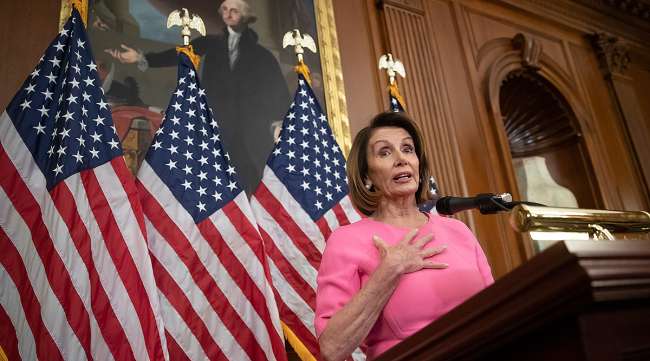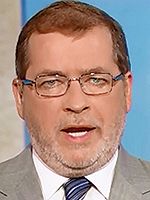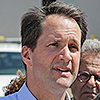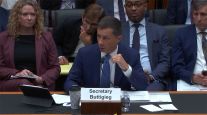House Democrats Seek Deals With Trump on Infrastructure, Drugs

House Democrats will use their new majority to seek deals with President Donald Trump on infrastructure spending and prescription drug costs, but won’t back down on their oversight responsibilities, said party leader Nancy Pelosi, in line to regain the speaker’s gavel.
“We believe we have a responsibility to seek common ground where we can,” Pelosi of California told reporters at a news conference Nov. 7. “Where we cannot, we must stand our ground.”
Pelosi, who served as the first female House speaker from 2007 to 2011, said she is the best person to take the job in January. Some members of her party have said they want new leadership, and she has previously said she wants to serve in a transitional role.
DEMS TAKE HOUSE: Carper, other key transportation policymakers fend off challengers
She said she spoke with Trump and Senate Majority Leader Mitch McConnell on providing funds for infrastructure — a subject all three said at separate news conferences was a prime possibility for bipartisan agreement. Another, all three said, was a plan to reduce prescription drug costs.
“I give her a lot of credit, she works very hard,” said Trump, who has harshly criticized Pelosi in the past. “There are many things we can get along on without a lot of trouble.”
Democrats also want to protect the Affordable Care Act, said Pelosi, who called on Republicans as a sign of “good faith” to end the states’ lawsuit seeking to end Obamacare, including its protection for people with pre-existing conditions.
The Democrats, set to have only a slim majority, must come up with policy goals that moderate and liberal members alike can support.
They will seek to work out an economic plan — whether to vote on a $15 minimum wage or try to repeal any of the 2017 GOP tax cuts. Both ideas are backed by many liberal members but guaranteed to fail with Trump and the Republican-controlled Senate.
Second-ranking Democrat Steny Hoyer, who is running to become House majority leader, said careful policymaking was the reason the party’s last majority could pass most bills with only Democratic votes. Still, he said his party wants to enact legislation, not just pass so-called messaging bills.
“All of the proposals will be vetted by our membership,” Hoyer of Maryland said in an interview late last week. “We were rightly outraged when the Republicans passed a $2 trillion tax cut for the wealthy and corporations without a single hearing.”
Centrist Democrats are working to avoid confrontation with the administration and to look for deals with Republicans on bills.
“If we didn’t really think strategically about how to use two years in the majority, we could blow it. We could see the president re-elected,” said Rep. Jim Himes of Connecticut, chairman of the moderate New Democrats. “It’s easy for us to overemphasize the criticism of the president at the expense of thinking about making progress on kitchen-table issues.”
Centrist Democrat Conor Lamb, who is in his first full term in Pennsylvania, said he wasn’t eager to push to get Trump’s tax returns or to impeach the president.
If we didn’t really think strategically about how to use two years in the majority, we could blow it.
Rep. Jim Himes (D-Conn.)
“No. I want to build infrastructure and get prescription drug prices down,” he told CNN.
Pelosi seems to have gotten the centrists’ message. “The fact is that we’d like to work together so that our legislation will be bipartisan,” she said.
A key issue on an infrastructure plan will be determining how to pay for it, including whether to back a gas tax increase and how to get bipartisan support, Hoyer said. Democrats aren’t interested in the Trump administration’s proposal to privatize roads and bridges to pay for improvements.
“Both sides have made this an objective” and Democrats want a compromise, Hoyer said in the interview. “We have criticized the Republicans for passing so-called messaging bills and we are not interested in doing that.”
Democratic Rep. Peter DeFazio of Oregon, in line to become chairman of the House Transportation and Infrastructure Committee, told reporters Nov. 7 he wants to get a spending bill for roads, bridges, airports, transit, wastewater, and other public works through the House in the first six months of 2019 before 2020 presidential politics take over. DeFazio didn’t specify an amount but said the needs for surface transportation alone exceed $500 billion, and that a higher federal gas tax or some other funding mechanism is needed.
An infrastructure push would find support among industry lobbyists. “Modernizing our nation’s infrastructure, promoting free and fair trade, and supporting a strong agriculture economy should all be bipartisan priorities for the 116th Congress,” said Dennis Slater, president of the Association of Equipment Manufacturers.
Outgoing House Majority Whip Steve Scalise, a Louisiana Republican, said in an interview Nov. 6 that Republicans and Trump will do deals with Democrats if they benefit the economy.
“We have the best economy we have had in generations,” he said. “If they want to get off the sidelines and help the president in keeping that going, the president has said he is interesting in working together,” Scalise said Nov. 7. He’s running for minority whip, the second-ranking job.

Norquist
Anti-tax conservative activist Grover Norquist said he’s confident that new Democratic moderates in the House won’t back a gas-tax increase.
“They are going to be sitting on a whole bunch of districts that could easily revert,” Norquist said before the election. “It’s one thing to sacrifice yourself on the altar of big government for Obamacare or a tax increase that will be in place after you’re gone. Are you really going to vote for that if you have no chance of getting the tax increase?”
Norquist said he plans to pitch selling up to $1 trillion in federal property to pay for infrastructure improvements.





